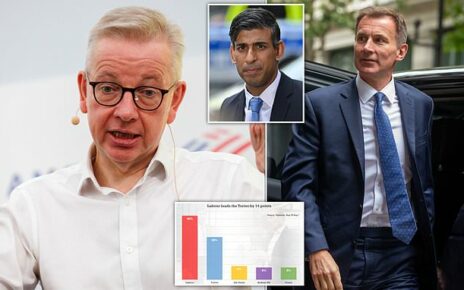Save articles for later
Add articles to your saved list and come back to them any time.
Economists use such boring language, don’t they? Take the following from this week’s Intergenerational Report: “Structural changes to the economy are projected to put pressure on the revenue base over the coming decades”. That’s an extremely dull way of saying we have a massive tax problem.
We’re about to get older – which means we require much more government spending on things like healthcare, aged care and the NDIS – and have no real way to pay for it. Even old favourites such as taxing petrol or cigarettes will fall short because electric cars are only going to get more popular, and tobacco tax revenue has already started falling.
So, we’ll have to dream up some new taxes and expand some existing ones.
We have spent years building a system that makes housing unaffordable.Credit: Simon Letch
And we’ll have to do this amid a housing crisis. The current pain might feel like an acute moment, but it is really the culmination of decades of policy in which every factor has pulled in the direction of making housing unaffordable. Our tax system encourages us to take on large amounts of debt to accumulate investment properties, while we build houses too slowly to meet demand.
Meanwhile, we seek more workers to fund expanding government spending. That’s hard in an ageing society where an ever smaller proportion of people work and pay tax. Hence, the imperative for us to have more babies, take in migrants or both. Accordingly, the housing crisis is not an adjunct to our tax problem: it’s at the core of it. People who can’t afford housing aren’t likely to rush into having kids. And adding migrants rapidly adds demand for housing, thereby making it immediately more expensive.
A major problem here is that we rely far too much on collecting tax from workers. They pay twice as much overall tax as companies, for example, and enjoy relatively few tax breaks. At the same time, we give tax breaks to people who own investment properties and increase the demand for houses. You don’t have to believe property owners are all fat cats to think this is a problem. Indeed, many landlords are not particularly wealthy. But the issue here isn’t one of wealth so much as it is one of incentives. When we direct our tax concessions to property owners rather than workers, we make two significant, related statements: 1) having assets is better than working; and 2) passive income is better than income from productive activity.
We’re used to talking about productivity when it comes to workers. Specifically, we hear that wage growth without a corresponding increase in productivity simply leads to inflation, and because Australia has a productivity problem at the moment, real wage growth is unrealistic. Why, then, doesn’t a similar idea apply to property investment? We encourage it, and our politics therefore requires property prices to keep increasing, but we never talk about whether this is productive. And in truth, there’s often very little that’s productive about it.
If I buy a house, then rent it out and wait for its value to increase over time, what will I have actually produced? The house exists either way, someone lives in it either way, and it requires no real labour from me. Unless I’m ploughing significant money into renovation, maintenance is about the most productive thing I could say I’m doing.
That’s different from other kinds of investment. Someone who puts money into a new business, or an old one planning to expand, is helping to produce something. Even someone who builds a new house, or takes a block of land and turns it into several dwellings, is doing something productive – so it makes perfect sense for them to get tax concessions such as negative gearing. What they are not doing, is simply taking ownership of a pre-existing and largely unchanging asset and hoping to profit passively from that fact.
This is not some piercing, new analysis. The whole point is that it’s a basically conventional one. Since the late ’60s, economists have used the concept of “rent-seeking” to capture the economic harm that occurs when people seek to increase their wealth without doing anything to create new wealth for society. They often illustrate this with the extreme example of something like theft, or piracy.
Thieves and pirates don’t produce anything themselves. They therefore create no new wealth, and simply take what already exists. In the process, those who actually do produce things (only to have them stolen) have less profit for their risk and effort, while the thief enjoys almost pure profit. If we didn’t provide serious disincentives for this – like imprisonment – we’d find over time that society would produce less, and what little it produced would become hugely expensive.
So, the economic theory goes, we shouldn’t incentivise legal forms of rent-seeking either. We don’t want companies taking government money to do things they would do anyway. We don’t want our market distorted by powerful lobby groups who convince politicians to give them subsidies or put tariffs on competitors. If they succeed in this, they end up with greater market share, inequality increases, and consumers pay more. Sound familiar?
If we’re going to have to rethink our tax system, rent-seeking seems a good place to start. Perhaps if we taxed productive profit less than its unproductive counterpart, we’d have the seedlings of a system better designed to meet what the Intergenerational Report warns us is coming. Of course, landlords are not typically considered rent-seekers in this technical sense. But there’s a case to be made that our tax system makes them so. Their tax concessions, such as on negative gearing and capital gains, are a kind of government subsidy maintained, in part, by a strong lobby group. That’s not a criticism of landlords or property investors, against whom I have nothing. But it is a criticism of the incentives that make most of us wish we were part of their cohort.
Waleed Aly is a regular columnist.
The Opinion newsletter is a weekly wrap of views that will challenge, champion and inform your own. Sign up here.
Most Viewed in National
From our partners
Source: Read Full Article



